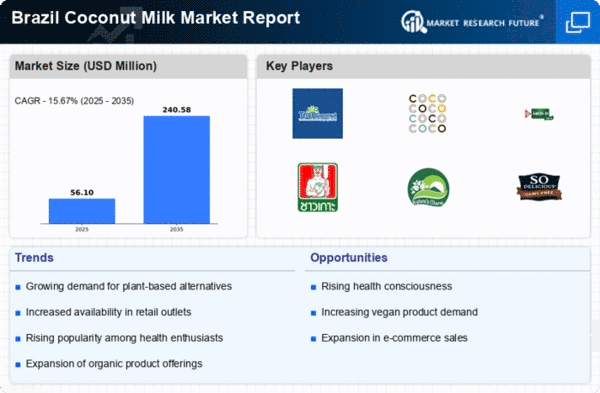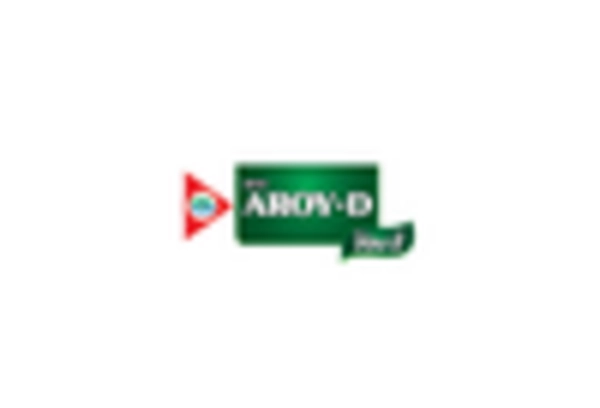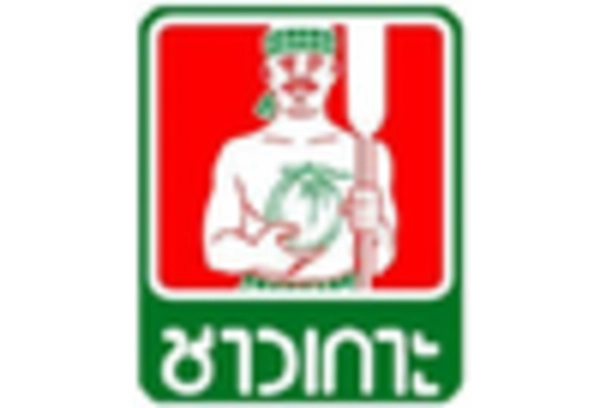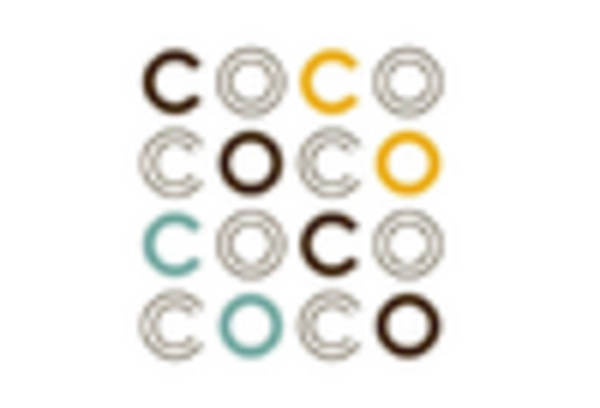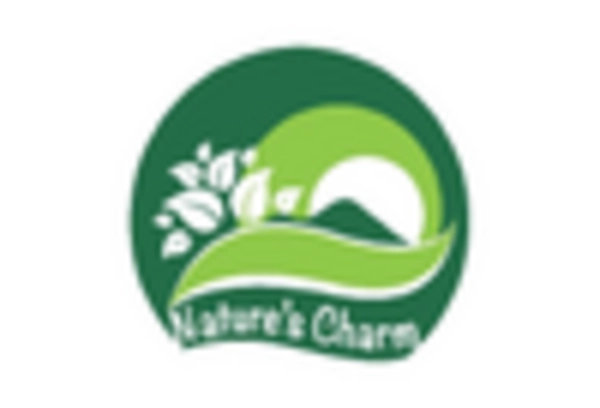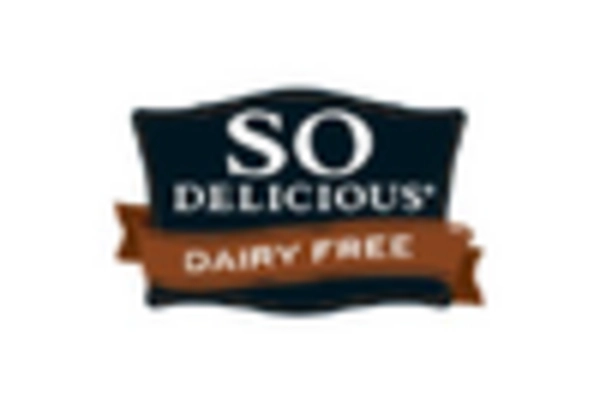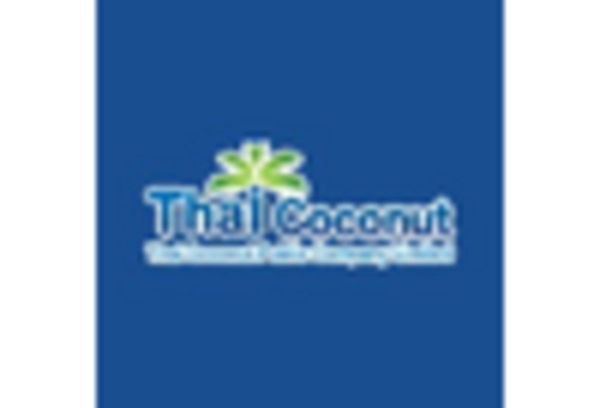Expansion of Retail Channels
The coconut milk market in Brazil benefits from the expansion of retail channels, which enhances product accessibility for consumers. Supermarkets, health food stores, and online platforms are increasingly stocking coconut milk products, making them readily available to a broader audience. This trend is particularly significant as e-commerce continues to grow, with online grocery sales projected to reach $10 billion by 2026. The coconut milk market is leveraging this opportunity by collaborating with retailers to ensure optimal shelf placement and visibility. As more consumers seek convenient shopping options, the availability of coconut milk in various retail formats is likely to drive sales and increase market penetration.
Sustainability and Ethical Sourcing
The coconut milk market in Brazil is increasingly shaped by sustainability and ethical sourcing practices. Consumers are becoming more discerning about the environmental impact of their food choices, leading to a preference for products that are sustainably sourced. The coconut milk market is responding by ensuring that coconut production adheres to ethical standards, promoting fair trade practices, and minimizing environmental footprints. This trend is likely to resonate with eco-conscious consumers, potentially driving a 10% increase in market growth as brands that prioritize sustainability gain consumer trust. As awareness of environmental issues continues to rise, the demand for responsibly sourced coconut milk is expected to grow, influencing purchasing decisions.
Increased Awareness of Health Benefits
The coconut milk market in Brazil is significantly influenced by increased awareness of the health benefits associated with coconut milk consumption. Rich in medium-chain triglycerides (MCTs), coconut milk is perceived as a healthier alternative to traditional dairy products. This perception is supported by various studies highlighting its potential benefits for weight management and heart health. As health-conscious consumers seek nutritious options, the coconut milk market is likely to see a rise in demand. In 2025, it is estimated that the health benefits narrative could contribute to a 20% increase in sales, as more individuals incorporate coconut milk into their diets for its perceived health advantages.
Rising Demand for Plant-Based Alternatives
The coconut milk market in Brazil experiences a notable surge in demand for plant-based alternatives, driven by a growing consumer preference for dairy-free options. This trend aligns with the increasing awareness of lactose intolerance and the health benefits associated with plant-based diets. In 2025, the market is projected to grow at a CAGR of approximately 8%, reflecting a shift towards healthier lifestyle choices. The coconut milk market is capitalizing on this trend by introducing innovative products that cater to diverse dietary needs, including vegan and gluten-free options. As consumers become more health-conscious, the demand for coconut milk as a versatile ingredient in beverages, desserts, and cooking is likely to expand, further solidifying its position in the market.
Culinary Innovation and Product Diversification
The coconut milk market in Brazil is witnessing culinary innovation and product diversification, which play a crucial role in attracting consumers. Manufacturers are developing a range of coconut milk products, including flavored varieties and ready-to-use cooking bases, to cater to evolving consumer tastes. This diversification is essential as it allows the coconut milk market to tap into different culinary segments, from traditional Brazilian dishes to modern fusion cuisine. In 2025, the introduction of new product lines is expected to contribute to a 15% increase in market share, as consumers seek unique flavors and convenient cooking solutions. This trend indicates a vibrant market landscape where creativity and culinary exploration drive growth.


